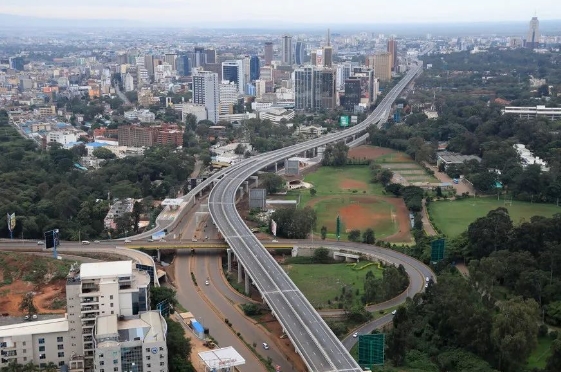Add:1506,Tower West,Jinrun International Plaza,No.85 East Nanxijiang Street,Jianye District,Nanjing,China,210019
Tel: 025-58866358
025-58933315
Fax:025-58867358
E-mail:info@bonagrain.com
The upcoming 2024 Summit of the Forum on China-Africa Cooperation is expected to bear fruitful results to further deepen Sino-African relations, according to observers in Africa.

▲ Photo taken on May 8, 2022 shows a section of the Nairobi Expressway in Nairobi, Kenya. Photo/Xinhua
With the African Development Bank estimating that Africa's need for infrastructure funding is between $130 billion and $170 billion annually, Khan said the FOCAC summit will present an opportunity to address such a challenge.
"China is currently the biggest trading partner with the African continent, and therefore this partnership is highly important for all the involved parties, since these economies are interdependent," said Khan. "The summit presents an opportunity to deepen cooperation in areas such as education, infrastructure development, healthcare and technology. We anticipate concrete commitments and action plans that will drive sustainable development and mutual growth."
As African countries intensify efforts to boost intra-Africa trade, quality infrastructure, such as roads and railways, is needed to support the free movement of goods and support trade on the continent, Khan said. Therefore, it is likely that the FOCAC summit will prioritize infrastructure development to enhance connectivity between African countries, as well as connectivity between China and Africa as a whole, he added.
"This connectivity is the engine that drives economic growth and feeds into" the China-proposed Belt and Road Initiative, which has drawn the participation of 44 sub-Saharan African countries, Khan said.
The upcoming summit, similar to previous FOCAC meetings, is expected to discuss educational exchanges and research, which will help boost scholarships and collaborative research projects to stimulate innovation and skills development in Africa, he said.
In addition, more cooperation is expected in areas that will boost the sustainable and long-term development of Africa, such as healthcare and green technologies, he said, adding that these priorities are essential for fostering long-term sustainable growth and improving the quality of life across the African continent.
"FOCAC has been highly beneficial in nurturing China-Africa relations," Khan said. "There have been significant investments in roads, railways and ports that have improved trade and mobility for many African nations. There have been joint efforts in combating diseases like Ebola and COVID-19, including improving healthcare infrastructure and capacities for some countries in Africa. In terms of people-to-people exchange, important exchange mechanisms and platforms have been established under FOCAC."
One of the numerous projects supported by FOCAC in Africa is an institute at Durban University of Technology that supports technology, innovation and entrepreneurship, and promotes vocational training that aligns with local needs, he said.
Khan said he also expects that more projects will be established across Africa that will improve inclusive development, benefiting all segments of society, and will align with environmental sustainability goals in order to mitigate climate change impacts on many African countries.
Oliver Bulaya, a prominent advocate of smart agriculture in Zambia, said that under FOCAC, increased Chinese investment and development initiatives have had a significant impact on local communities in the nation over the past two decades.
He said he hopes that future cooperation will focus more on addressing environmental and social challenges for local communities, so that FOCAC can contribute to a more sustainable and inclusive development path for Zambia.
Meanwhile, speaking with representatives of the Chinese community in Kenya at a meeting on Aug 6, Musalia Mudavadi, Kenya's prime cabinet secretary, said the upcoming FOCAC summit will renew practical cooperation with China in a wide range of areas, such as trade and investment, green financing, affordable housing and people-to-people exchanges.
Khan, from South Africa, said that Chinese engagement in Africa is different from that of the former colonial powers and some other major nations.
"Chinese engagement often focuses on mutual benefit and noninterference, prioritizing development and long-term investments," he said. "In contrast, Western partners sometimes emphasize governance reforms and conditional aid. China's approach has been appreciated for its focus on practical development outcomes and respecting domestic sovereignty."
Reporter: Ndumiso Mlilo


